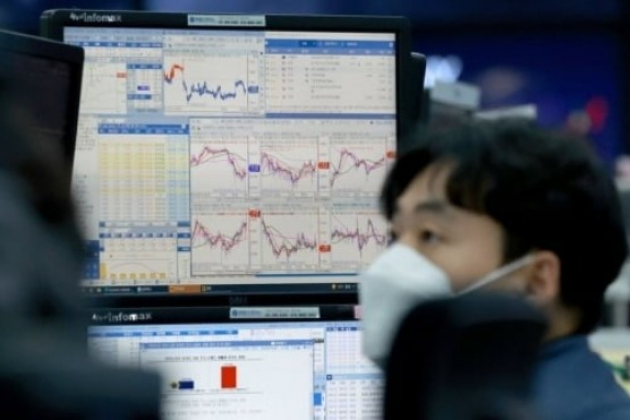Korean stock market
S.Korea prepares to launch $7.6 bn stock market stabilization fund
The fund's management committee is discussing the timing for capital injection given the Kospi's recovery to the 2,300 range
By Nov 02, 2022 (Gmt+09:00)
1
Min read
Most Read
LG Chem to sell water filter business to Glenwood PE for $692 million


Kyobo Life poised to buy Japan’s SBI Group-owned savings bank


KT&G eyes overseas M&A after rejecting activist fund's offer


StockX in merger talks with Naver’s online reseller Kream


Mirae Asset to be named Korea Post’s core real estate fund operator



South Korea last week completed the process needed to launch a stock market stabilization fund of 10.76 trillion won ($7.6 billion). The timing for capital injection is being discussed as the main bourse Kospi has rebounded.
A resolution on the fund was made last week by 23 financial groups and financial services firms, including banks, insurers and brokerages. The fund consists of a 10 trillion won commitment from the 23 entities and 760 billion won from the Korea Exchange and three state-run financial services institutes.
The total amount is equivalent to 142% of Kospi’s average daily trading amount in October.
Korea Investment Management Co. will make capital calls, which entails collecting pledged funds from the investors when the need arises, for injection in Kospi 200 exchange-traded funds (ETFs) and index funds.
The fund management committee held its first meeting on Oct. 31, when members discussed when the capital injection should be made.
The committee decided it won't inject capital in the market immediately as the Kospi has bounced back above 2,300. The index fell to around 2,150 when revitalization of the fund was first planned in late September.
“The purpose of the fund is to normalize the market, not to simply boost stock prices,” a committee source said, adding: “We will urgently inject capital if the stock market plunges, but the market is currently not in such condition."
The timing for capital injection hasn't yet been decided as the weighty investment is expected to heavily affect the market, the source said.
The committee has also raised concerns about monetary stringency, saying it should closely monitor the matter as bond market risk may extend to stocks.
Write to Hyeong-Gyo Seo at seogyo@hankyung.com
Jihyun Kim edited this article.
More to Read
-
 Korean stock marketKorea to complete process for stock market fund in mid-Oct
Korean stock marketKorea to complete process for stock market fund in mid-OctOct 04, 2022 (Gmt+09:00)
2 Min read -

-
 MarketsKospi hits two-year low; regulators mull short-selling ban
MarketsKospi hits two-year low; regulators mull short-selling banSep 28, 2022 (Gmt+09:00)
2 Min read -

Comment 0
LOG IN


